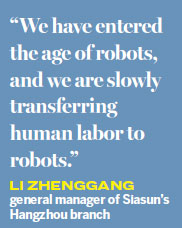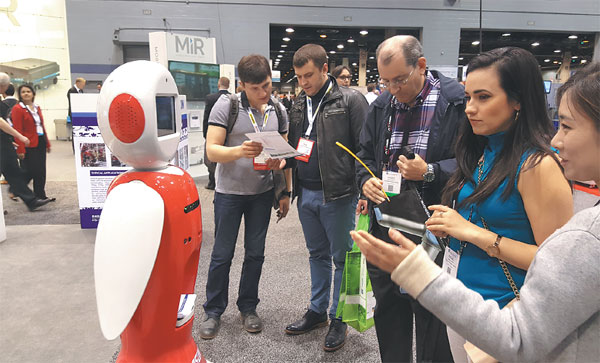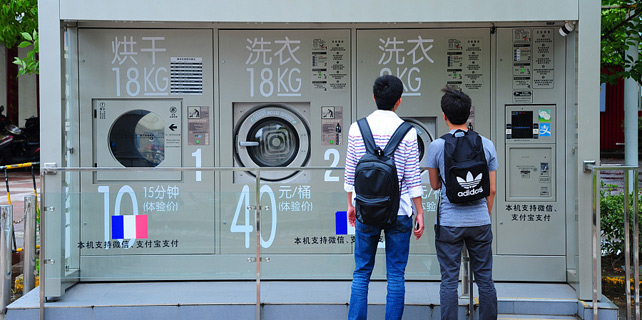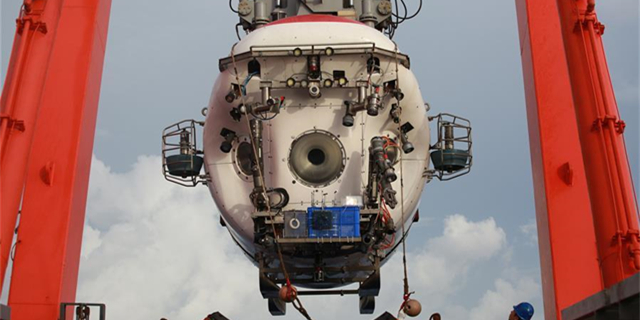Robots hold keys to future of manufacturing
Siasun's products are entering global markets, closing gaps between industry and technology
Chinese robots recently made a grand entrance at the Chicago Automate 2017 Expo and Conference in Chicago, the United States, the largest robotics show in North America.
Siasun Robot and Automation, a research and development company headquartered in Shenyang, Liaoning province, showcased a series of composite service robots.
Among its exhibits is a service robot series that is able to provide guidance to visitors in several situations, from tourism centers and banks to exhibitions and more. They can also be applied to the culinary industry, capable of waitressing, ordering, ushering and restaurant promotion.
|
Siasun Robot and Automation's representative introduces the company's products to visitors at the Chicago Automate 2017 Expo and Conference in April. Provided to China Daily |
Another type of robot the company launched is expected to replace human labor in simple manufacturing tasks in the future, its business representatives said.
The United States is one of the first countries to which Siasun has exported its products.
Siasun-made robots have been widely employed on manufacturing lines in automobile companies, such as Ford and General Motors.
"Siasun, a flagship automation brand in China, has more than 30 years of R&D and production expertise in the field," said Chen Li, manager of the technology department at Siasun's Hangzhou branch. "The company has caught up with the advanced industrial levels of the world, and its robots are not only able to do simple tasks but also handle delicate jobs."

Gudrun Litzenberger, secretary general of the International Federation of Robotics, said China has a profound market for robot business.
He predicted China will see a dramatic increase in demand. To push the domestic robot industry to a high level will require more collaboration between the Chinese manufacturers and technology suppliers, he noted.
"We have entered the age of robots, and we are slowly transferring human labor to robots," said Li Zhenggang, general manager of Siasun's Hangzhou branch.
"But we need to overcome the hurdles. Domestic designers need to work closely with the manufacturers to create the maximum value, reduce costs and increase profits."
Li said only by close collaboration can the Chinese robot industries o; er competitive solutions.
In advanced equipment manufacturing, Shenyang has been echoing the national call for the Made in China 2025 strategy proactively.
The provincial capital has been keeping up with the international advanced equipment industry by encouraging investment and innovation, building industrial clusters and developing related service sectors from finance to logistics.
( China Daily European Weekly 05/26/2017 page20)



















